By: Madaline M. George
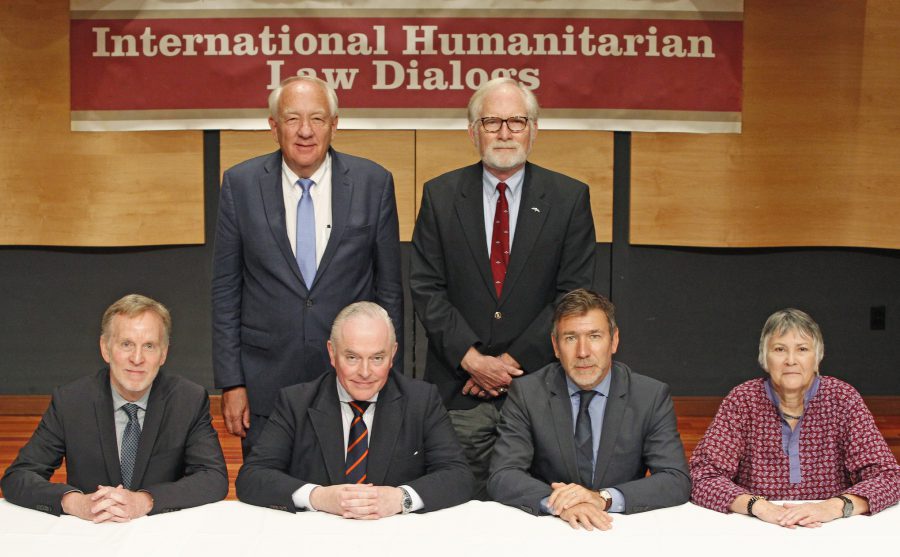
The 12th International Humanitarian Law (IHL) Dialogs recently drew to a close in Chautauqua, NY. This annual gathering, which the Harris Institute has supported since its inception, took place August 26-28 and brought together prosecutors of the world’s International Criminal Court and Tribunals, activists, prominent academics, and civil society leaders. Each year these individuals discuss issues of international justice and the world’s worst atrocities. This year, the discussion was enlightened by the voices of those who have suffered directly from these atrocities – the victims and survivors. The topic of the 12th Dialogs: Is the Justice We Seek the Justice They Want? posed a highly relevant question. As the global community becomes more involved in these conflicts – not only in prosecuting perpetrators and in pushing forward institutions such as the International Criminal Court, but in offering assistance and receiving millions of displaced persons – this is an important question to ask. Are these efforts meeting the needs and wants of the victims?
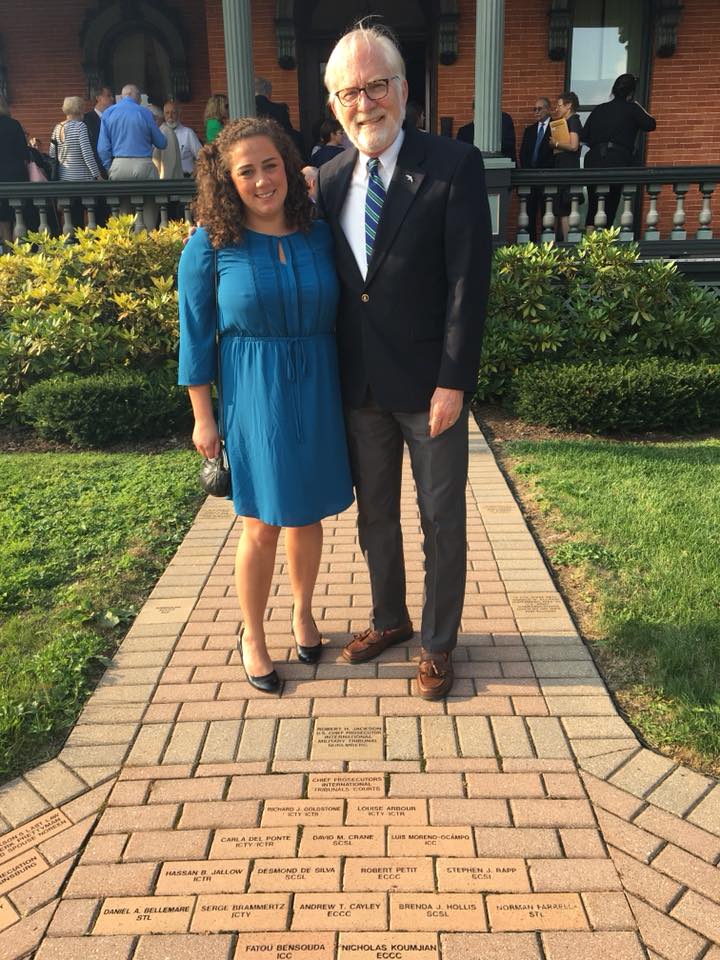
Harris Institute Fellow Madaline George & former SCSL Prosecutor David Crane
It’s complicated. As I saw working with asylum seekers who fled conflict in the Democratic Republic of the Congo and Burundi at Lawyers for Human Rights in South Africa, often the most immediate thing survivors seek is safety. This point was made at the Dialogs by Scott Roehm, Director of the Washington, D.C. office of the Center for Victims of Torture. But once a sense of safety is established, what is it that these victims look for? A few themes arose at the Dialogs.
Mohamedou Ould Slahi, author of Guantánamo Diary, was held by the U.S. government for 14 years without a charge or trial. He was kidnapped from his home country of Mauritiania in 2011 and moved from Jordan to Afghanistan and eventually to Guantánamo, during which he was subjected to State-sanctioned torture. He remains under house arrest in Mauritiania – again, having never been charged with a crime and there being no credible evidence presented against him. No legal remedy exists for his freedom. When asked via video call what type of justice he would like to see, he answered that he wants the government “to at least apologize, admit that they were wrong.” Salahi said the most important thing the people at the Dialogs were doing was breaking the silence.
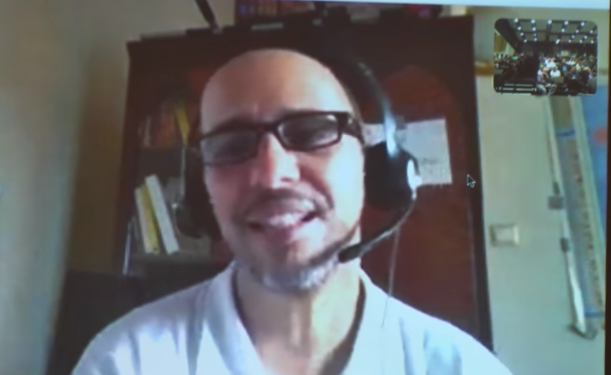
Mohamedou Ould Slahi spoke at the IHL Dialogs via a video call from his home in Mauritania, where he remains under house arrest.
The importance of this was echoed by Zainab Bangura, a Sierra Leonian politician and social activist and Special Representative of the Secretary-General on Sexual Violence in Conflict. She explained that victims want their story to be heard and want acknowledgment, in particular when there is impunity and silence amid such widespread crimes. Bangura emphasized that this culture of silence is especially damaging for victims of rape during atrocities, who suffer from added abuses because of the stigma and marginalization they often face in their communities.
Catherine Read, Executive Director of the citizen-led North Carolina Commission of Inquiry for Torture, agreed that apology and acknowledgment is a key piece for healing and moving forward. Through telling the world the truth and having their perpetrators admit to wrongdoing and offer an apology, victims and survivors are granted a sense of dignity. In regards to the torture and rendition program that occurred after 9/11 – the United States continues to remain silent; whereas the United Kingdom has offered some apologies to victims of their own rendition program. As Salahi’s case emphasizes, this treatment perpetuates the wrongs they have already suffered.
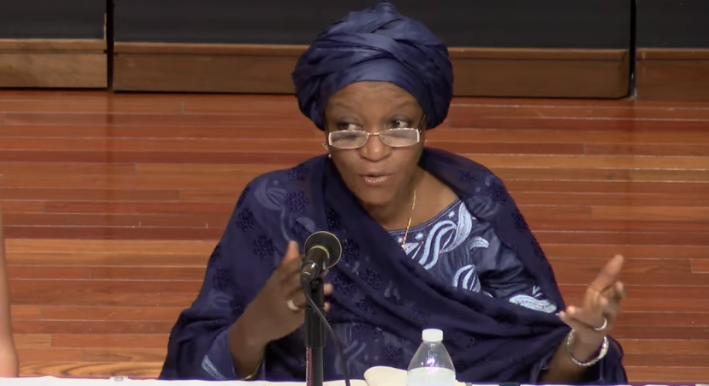
Zainab Bangura
Binta Mansaray, Registrar of the Residual Special Court for Sierra Leone, has seen firsthand what the Truth and Reconciliation Commission in Sierra Leone accomplished and explained that without this process of truth-telling there can be no justice. But, as she says, it is only one piece of the puzzle. In addition to letting survivors tell their stories and get an apology – peace cannot hold if the perpetrators have immunity, so victims rightfully also want retributive mechanisms. Because as Stephen Rapp, former Ambassador-at-Large heading the Office of Global Criminal Justice in the U.S. State Department, explained, “the demand for justice is there, because the evidence is there. Because of the law is there. And in the future – there will be justice for the worst crimes against mankind.” In the case of the Sierra Leone, this was aided by the creation of the Special Court of Sierra Leone (SCSL). International efforts to end impunity and enforce the rule of law must continue, for as Salahi said “disrespecting the human rights of one person is disrespecting the human rights of all humanity.”
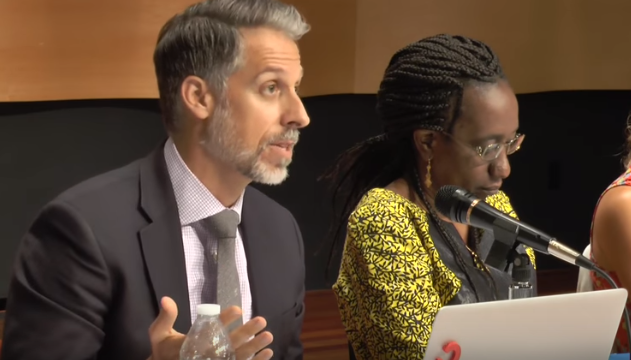
Scott Roehm & Binta Mansaray
Mansaray and others emphasized that the success of the SCSL was largely dependent on the involvement of local NGOs and community organizations and outreach and visibility among the people of Sierra Leone. Herman Von Hebel, Registrar of the International Criminal Court and former Deputy Registrar then Registrar of the Special Court for Sierra Leone, told a beautiful story of the SCSL broadcasting opening statements (with translation) onto giant screens in remote areas, so that those subjected to the crimes being prosecuted could be connected to the trials happening in Freetown. Efforts like this to connect the affected communities to the international justice mechanisms ought to be supported and continued.
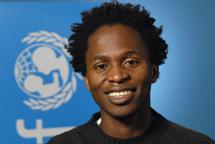
(Copyright UNICEF)
Ishmeal Beah, former child soldier and author of A Long Way Gone, spoke of the need to define his own future after experiencing atrocities. He recalled that after his ordeal as a child soldier ended, he was in a rehabilitative home. But he spoke of the frustration of people telling him what he should do with his future; that he should be a mechanic or a plumber. Or worse – there were many in society who cast him and his peers aside as broken and with no hope for leading a successful and contributive life. As someone who always had a passion for literature and writing, Beah had no interest in such professions (nor did he see much need for it in a country as broken down as Sierra Leone).
As Salahi said, it is important for his voice to be heard, because he wants to be the one to tell his story; he is sick of the government deciding for him and the world who and what he is. This is important for all of us who fight for justice to remember – it is not up to us to say who those who have suffered are and what they want; they must control their own story. And that includes whether they are victims, survivors, mechanics, or even world famous authors.
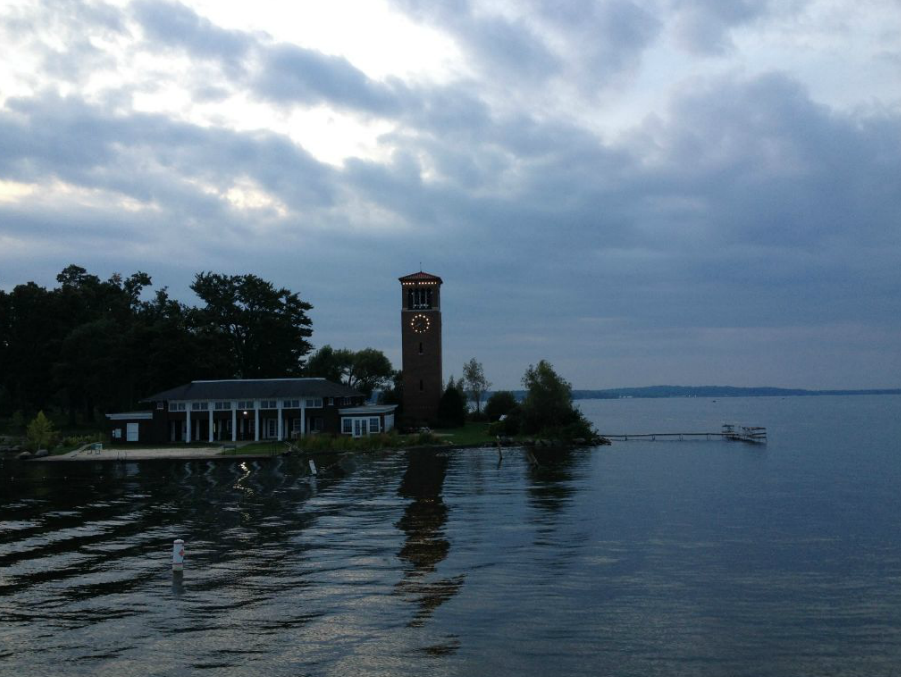
Lake Chautauqua
